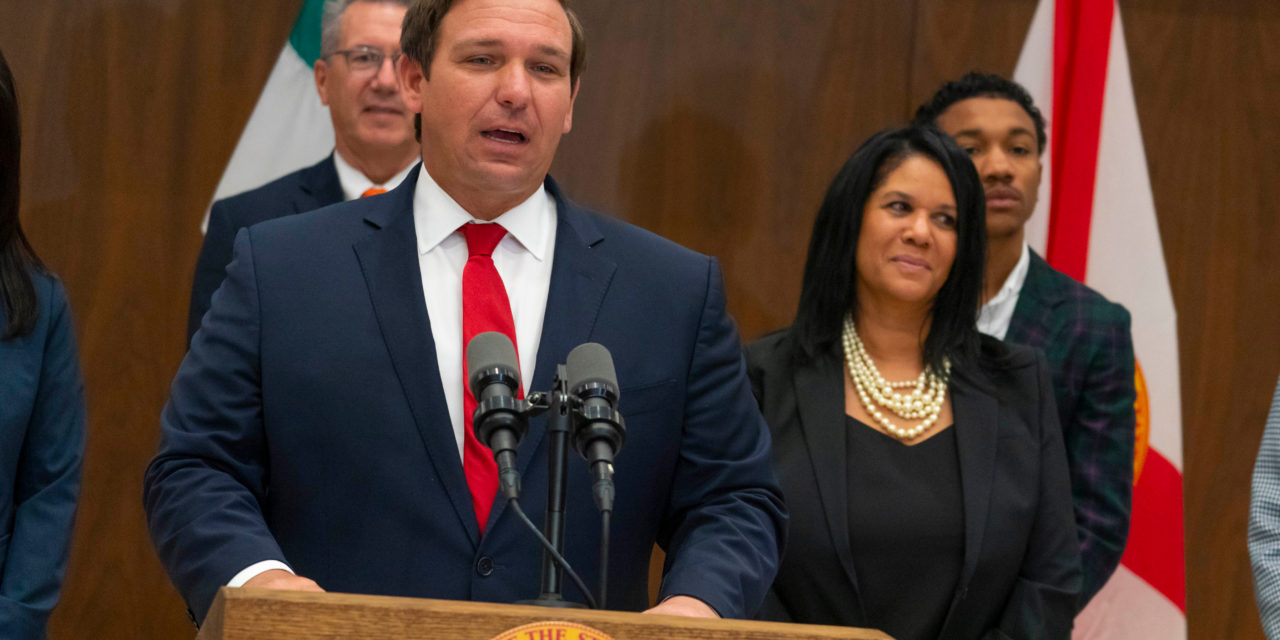Florida Governor Ron DeSantis has signed a bill into law ensuring that family members are able to visit their loved ones who are in hospitals, long-term care facilities and hospices.
Additionally, the act stipulates that vaccines cannot be required for family members to visit their loved ones, and “every health care facility must allow their residents and patients to be hugged by their loved ones.”
During the COVID-19 pandemic, there were countless stories of elderly Americans and nursing home residents who slowly lost the will to live after being completely isolated from their friends and family.
The New York Times recounts the case of long-term care resident Ms. Walsh, who “used to say ‘I love you’ when her children visited and kissed her.” But after eight months in isolation, she stopped noticing when they waved through her bedroom window.
“It’s like losing her again and again and again,” said her daughter, Colleen Mallory.
Or how about Charlie Cape, who at the beginning of the pandemic, despite his Alzheimer’s diagnosis, could still recognize his wife, Linda, of 50 years.
But after spending five months without any visitors, Mr. Cape stopped recognizing her.
“Charlie doesn’t know us anymore,” his wife said.
The Times relays, “She and her son go every Sunday with a cookie and a Diet Coke … Sometimes, during these visits, Mr. Cape just sits and cries.”
The isolation that many nursing home and long-term care facility residents were forced to endure for months on end during 2020 was heartbreaking and cruel.
But the new “No Patient Left Alone Act” aims to prevent those kinds of scenarios from ever happening again.
The bill (SB 988) carves out the following various scenarios where family members must be allowed in-person visitation:
- End-of-life situations.
- A resident, client, or patient who was living with family before being admitted to the provider’s care is struggling with the change in environment and lack of in-person family support.
- A resident, client, or patient is making one or more major medical decisions.
- A resident, client, or patient is experiencing emotional distress or grieving the loss of a friend or family member who recently died.
- A resident, client, or patient needs cueing or encouragement to eat or drink which was previously provided by a family member or caregiver.
- A resident, client, or patient who used to talk and interact with others is seldom speaking.
- For hospitals, childbirth, including labor and delivery.
- Pediatric patients.
SB 988 also permits any resident, client or patient to designate someone as an “essential caregiver” who then must be allowed to visit the individual for at least 2 hours per day.
The bipartisan bill was passed with near-unanimous support from legislators from both parties.
The Florida Senate passed the bill on March 4, 2022, in a vote of 37-0. All lawmakers from both parties supported the bill, minus two legislators who did not vote.
And lawmakers in the Florida House passed the bill almost unanimously in a 115-2 vote on March 9. Two state house members did not vote on the legislation.
Signing SB 988 into law, Gov. DeSantis said that the Department of Health and Human Services (HHS) has still suspended visitation protections for hospitals nationwide.
“There usually is federal protection … You have some parts of the country where people still aren’t able to get in and see their loved ones,” Gov. DeSantis noted.
“Isolating people is not healthy. And it’s not the right thing to do. And making sure that we’re facilitating the connections that really make life worth living is something that’s very important.”
“No one should be denied the choice to have family present in the hospital,” Gov. DeSantis tweeted following the event.
“I signed the No Patient Left Alone Act into law to protect the right of Floridians to have companionship when hospitalized. Floridians will be able to visit their loved ones when it matters most.”
Restricting hospital visitation has had a destructive impact on those receiving care and their families.
In Florida, we will continue to put patients and their families first. pic.twitter.com/VJwLvUgTwg
— Ron DeSantis (@GovRonDeSantis) April 7, 2022
Related articles and resources:
Counseling Consultation & Referrals
Increased Loneliness Causes Older Adults to Turn to Opioids, Prescription Drugs at Higher Rates
Deaths Due to Neglect Increasing at Nursing Homes, Showing COVID Not the Only Danger
Photo from Shutterstock.






